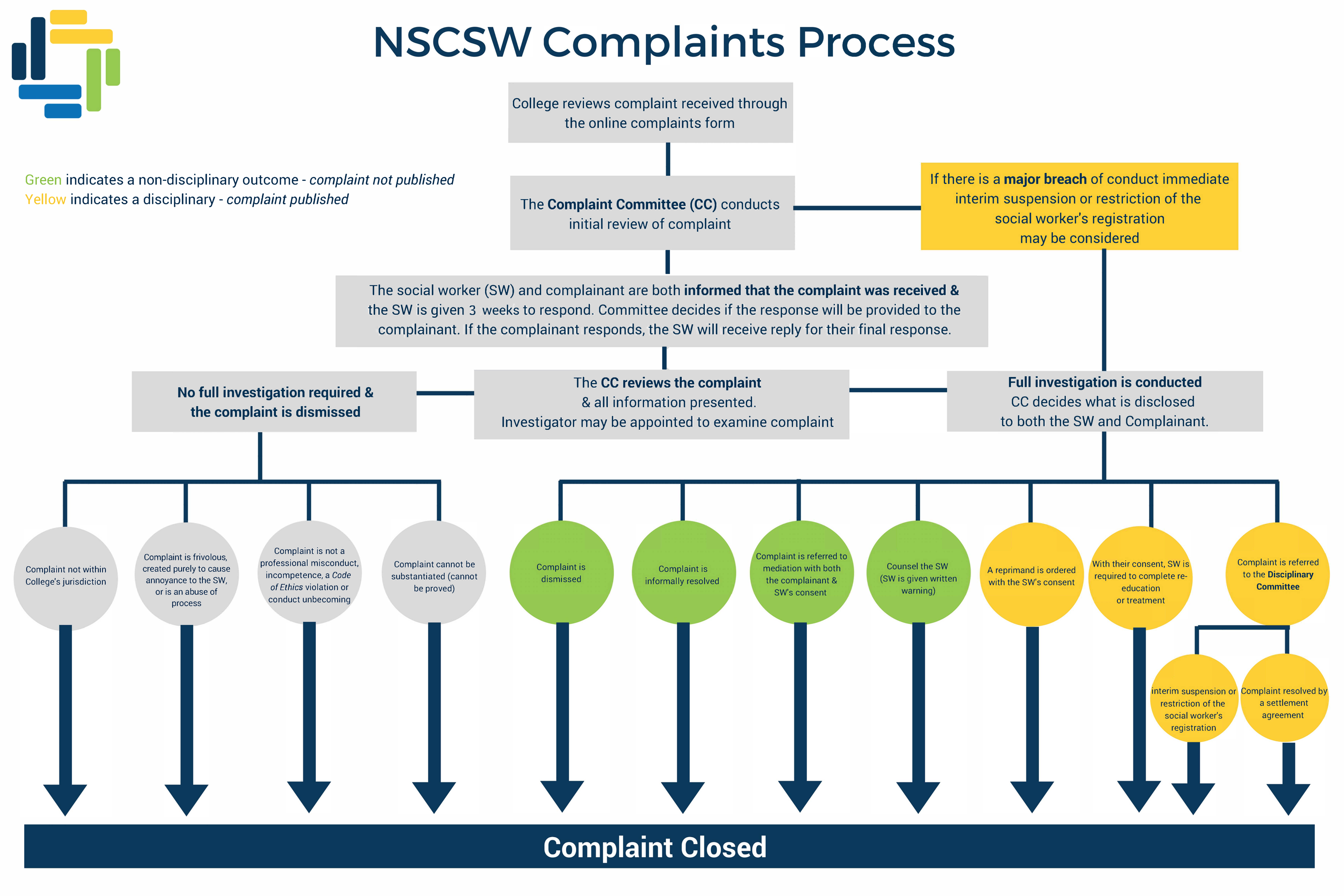At a discipline hearing, the Discipline Committee listens to all of the evidence presented
After the hearing, the Committee meets privately to consider the evidence. They consider the relevant facts of the complaint and may find evidence to prove that the member (social worker) is guilty of incompetence, misconduct, conduct unbecoming or in violation of the Code of Ethics.
If there is a finding against the member, the Committee must consider sanctions that will be applied. When they’ve made their decision, the Committee will prepare written reasons to support their decision.
These decisions may be made immediately after the hearing but if this is not possible, the Committee must arrange for a further meeting and come to a decision on the matter. When the decision and the reasons are prepared the member and the complainant are notified in writing.






